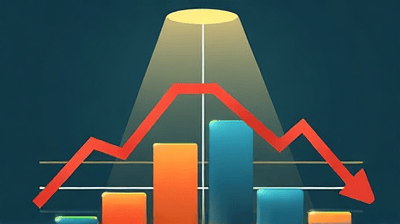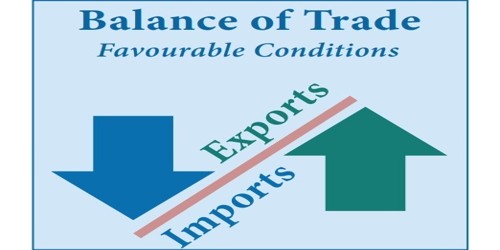
Inflation is a critical economic indicator that influences various financial markets, including the foreign exchange market. In forex trading, investors and traders must understand how inflation affects currency values and market trends.
Understanding Inflation
Inflation refers to the rate at which general prices for goods and services rise, eroding purchasing power. Central banks, such as the Federal Reserve in the United States or the European Central Bank in the Eurozone, closely monitor inflation rates to guide monetary policy. When inflation is high, central banks may raise interest rates to cool the economy, while low inflation may lead to rate cuts to stimulate growth.
Types of Inflation
Demand-Pull Inflation
- Occurs when demand for goods and services exceeds supply, driving prices up. This can be the result of increased consumer spending, government expenditure, or investment.
Cost-Push Inflation
- Results from rising production costs, such as wages and raw materials, leading to increased prices for consumers. This often occurs during periods of economic growth when demand for resources is high.
Built-In Inflation
- Also known as wage-price inflation, this occurs when businesses raise prices to cover increased labor costs, leading to a cycle of rising wages and prices.
The Relationship Between Inflation and the Forex Market

The forex market is influenced by various economic indicators, with inflation being one of the most significant. Here’s how inflation impacts currency values and trends:
1. Interest Rates and Inflation
Central banks use interest rates as a primary tool to control inflation. When inflation rises, central banks may increase interest rates to curb spending and borrowing. Higher interest rates can attract foreign capital as investors seek better returns, causing the currency to appreciate. Conversely, when inflation is low, central banks may lower interest rates to stimulate the economy, leading to potential depreciation of the currency.
2. Currency Value Fluctuations
Inflation affects the relative value of currencies. For example, if the United States experiences high inflation compared to the Eurozone, the US dollar may weaken against the euro. Traders will often sell currencies from countries with high inflation and buy those with lower inflation rates, leading to observable trends in currency pairs.
3. Market Sentiment and Expectations
Traders and investors closely monitor inflation data and central bank policies. If inflation is expected to rise, traders may anticipate interest rate hikes and position themselves accordingly. This can lead to significant volatility in forex markets as traders react to new information.
4. Long-Term vs. Short-Term Effects
Inflation can have both short-term and long-term effects on forex markets. Short-term effects are often driven by immediate reactions to inflation data releases, while long-term effects can be seen as sustained inflation impacts currency depreciation or appreciation over time.
How Inflation Influences Specific Currencies
Different currencies react to inflation in various ways, depending on the economic context and the monetary policies of their respective countries. Here are a few examples of how inflation can influence significant currencies:
1. US Dollar (USD)
A primary global reserve currency, the US dollar is significantly affected by inflation rates and Federal Reserve policies. When inflation rises in the US, the Federal Reserve may respond with rate increases to counteract rising prices, thereby strengthening the dollar.
2. Euro (EUR)
Inflation dynamics within the Eurozone impact the euro's value. The European Central Bank may raise interest rates if inflation exceeds its target, supporting the euro. However, disparities in inflation rates among member countries can lead to variations in euro strength against other currencies.
3. British Pound (GBP)
The British pound is sensitive to inflation readings, particularly as they relate to Bank of England policy decisions. Rising inflation may prompt the bank to increase rates, strengthening the pound against other currencies.
4. Japanese Yen (JPY)
Japan has struggled with low inflation and deflation for decades. The Bank of Japan maintains a very accommodating monetary policy, which impacts the yen's strength. Rising inflation expectations may lead to shifts in monetary policy and affect the yen's value.
5. Emerging Market Currencies
Emerging market currencies are often more vulnerable to inflation and its effects. High inflation in these economies can lead to currency depreciation, and central banks may struggle to raise interest rates without stifling growth. This creates unique challenges for traders operating in these markets.
Strategies for Trading Forex During Inflationary Periods

Understanding the impact of inflation on currency trends can help forex traders develop effective strategies. Here are some approaches to consider:
1. Stay Informed on Economic Indicators
Keeping a close watch on inflation data, such as the Consumer Price Index (CPI) and Producer Price Index (PPI), can provide insights into future market trends. Additionally, monitor central bank announcements and economic forecasts to assess potential market reactions.
2. Utilize Technical Analysis
Technical analysis can help traders identify price patterns and trends related to inflationary pressures. Use tools like moving averages, trend lines, and support/resistance levels to gauge market sentiment and make informed decisions.
3. Focus on Interest Rate Differentials
Interest rate differentials between countries can create trading opportunities. When one country raises rates due to inflation while another maintains low rates, capital flows may shift, impacting currency pairs. Look for opportunities to trade based on these differentials.
4. Implement Risk Management Techniques
High volatility during inflationary periods can increase risk in forex trading. Use stop-loss orders and position sizing strategies to manage risk effectively. Diversifying your portfolio may also help mitigate exposure to specific currencies affected by inflation.
5. Consider Economic Cycles
Inflation often operates in cycles, and understanding the broader economic context can guide trading decisions. Different strategies may be required during periods of rising inflation compared to deflation or stable pricing environments.
6. Adapting to Market Sentiment
Market sentiment can shift rapidly in response to inflation-related news. Pay attention to traders' reactions to economic reports and adjust your strategy accordingly. Be prepared for increased volatility and potential reversals in trends.
The Role of Central Banks in Managing Inflation
Central banks play a crucial role in managing inflation and its effects on the forex market. Their decisions regarding interest rates, monetary policy, and inflation targets directly impact currency values.
1. Monetary Policy Tools
Central banks have several tools at their disposal to manage inflation, including:
Interest Rate Adjustments: Raising or lowering interest rates to influence spending and investment.
Open Market Operations: Buying or selling government bonds to affect the money supply.
Reserve Requirements: Changing the amount of money banks must hold in reserves, impacting lending and credit availability.
2. Inflation Targeting
Many central banks implement inflation targeting to maintain price stability. By publicly setting inflation targets, central banks aim to manage expectations and influence economic behavior. Successful targeting can lead to increased confidence in a currency.
3. Communication and Transparency
Effective communication by central banks regarding their monetary policy and inflation outlook can shape market expectations. Clear guidance on policy direction can reduce volatility and provide traders with valuable insights.
The Global Nature of Inflation

In a highly interconnected world, inflationary pressures are not confined to a single country. Global economic conditions, such as supply chain disruptions and commodity prices, can influence inflation across borders, affecting forex markets.
1. Commodity Prices
Rising commodity prices, such as oil and agricultural products, can contribute to inflation in importing countries. Higher import costs may lead to currency depreciation as traders anticipate central bank reactions.
2. Exchange Rate Pass-Through
Changes in exchange rates can impact inflation. A weaker currency may lead to higher import prices, which can feed into domestic inflation rates. Traders must consider how exchange rate movements can affect inflation dynamics.
3. Capital Flows and Investment
Inflation rates influence capital flows, as investors seek opportunities in countries with favorable interest rates and economic conditions. Shifts in capital can lead to currency appreciation or depreciation, impacting forex market trends.
Conclusion
The impact of inflation on forex market trends is complex and multifaceted. Traders must understand how inflation influences currency values, interest rates, and central bank policies to navigate the forex market successfully. By staying informed on economic indicators and employing effective trading strategies, forex traders can capitalize on inflationary trends and manage the associated risks.
As global economic conditions continue to evolve, inflation will remain a key focus for traders and investors alike. Understanding its implications for currency markets will provide a valuable edge in the dynamic world of forex trading.








